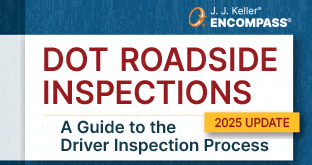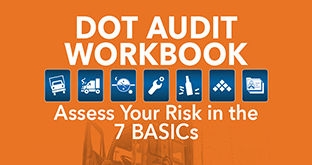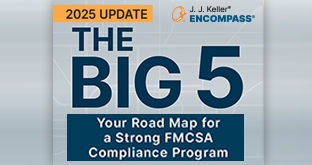Proactively manage fleet risk and ensure that every aspect of your alcohol & drug testing program complies with Part 40 and 382 of the DOT regulations and FMCSA's Drug & Alcohol Clearinghouse. The Encompass® Fleet Safety & Compliance Platform helps you organize your records, track all consents, test results, and paperwork. It protects driver confidentiality with user-defined access and tracks regulatory-required and custom elements.
Encompass also offers additional help and oversight for your Drug and Alcohol program with Third Party Administrator (TPA) services from J. J. Keller® Managed Services. Our staff can help you manage the details, including collection of testing paperwork, providing random selections, setting up collection sites, and coordinating laboratory and Medical Review Officer (MRO) services.


